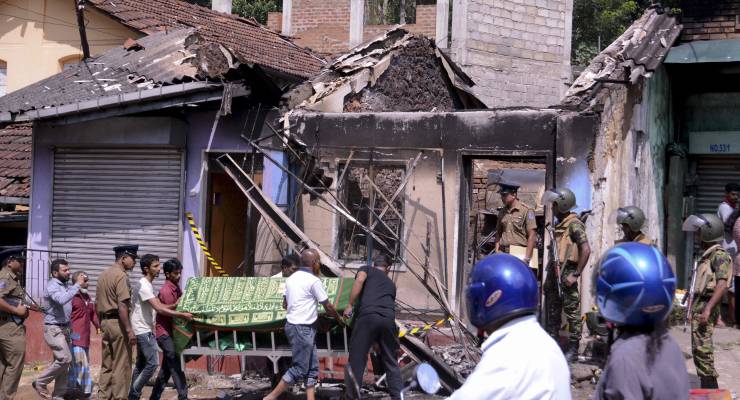
The government of Sri Lanka has declared a 10-day state of emergency after a a new boil-over of communal violence between majority Sinhalese Buddhists and minority Muslims.
Sinhalese make up around two-thirds of the population of Sri Lanka, with Muslims comprising around 9%. Hindu Tamils make up around 14% of the island-state’s population, with smaller groups comprising the rest.
The latest violence began following Sinhalese Buddhist accusations that Muslims had been forcing non-Muslims to convert to Islam and had caused vandalism at a Buddhist archeological site.
This is, however, widely seen as a pretext for an anti-Muslim campaign by Sri Lanka’s hard-line Buddhists, who believe that non-Buddhists should convert to Buddhism or leave the island state. The last anti-Muslim riots were in 2014, and followed a similar anti-Hindu campaign and subsequent bloody riots that ultimately led to the rise of the Tamil Tigers.
The Tamil Tigers were militarily defeated in 2009, with the loss of some 40,000 lives in the final campaign. There continues to be reports of anti-Tamil persecution and violence.
As a part of the state of emergency, a curfew has been imposed on the central city of Kandy. Kandy is home to numerous sacred Buddhist sites, including the “Temple of the Tooth”, which is one of Buddhism’s holiest sites.
The latest round of violence followed the killing of a Sinhalese man by a Muslim mob. Violence started in Ampara last weekend and soon spread to Kandy, where enraged Buddhist mobs responded by razing Muslim shops and attacking Muslim homes and mosques. Many chauvinist Buddhists regard Muslim shop-keepers in Kandy as an affront to Buddhism. There have since been reports of rioting spreading beyond Kandy to areas not affected by the curfew.
Sri Lanka’s government has said it will “take stern action” against rioters, with riot police and soldiers being deployed to the stricken areas. However, the overwhelmingly Sinhalese Buddhist police and soldiers have a history of selective focus in communal conflict.
As Sri Lanka has seen in the past, without greater control over the more radical elements of its chauvinist Buddhist community, such events have a way of entrenching communal violence.
Sri Lanka’s Muslim population stayed out of the bloody dispute between Tamil militants and the Sri Lankan government. It remains possible, however, that like some Tamils before them, such violence will entrench a counter-radicalism that could find expression in some of the Jihadi Islamist forms experienced elsewhere.








Every time I see “Hardline Buddhists” I do a double take .
It’s strange how “identity politics” is strengthening in so many different cultures – with shocking results here.